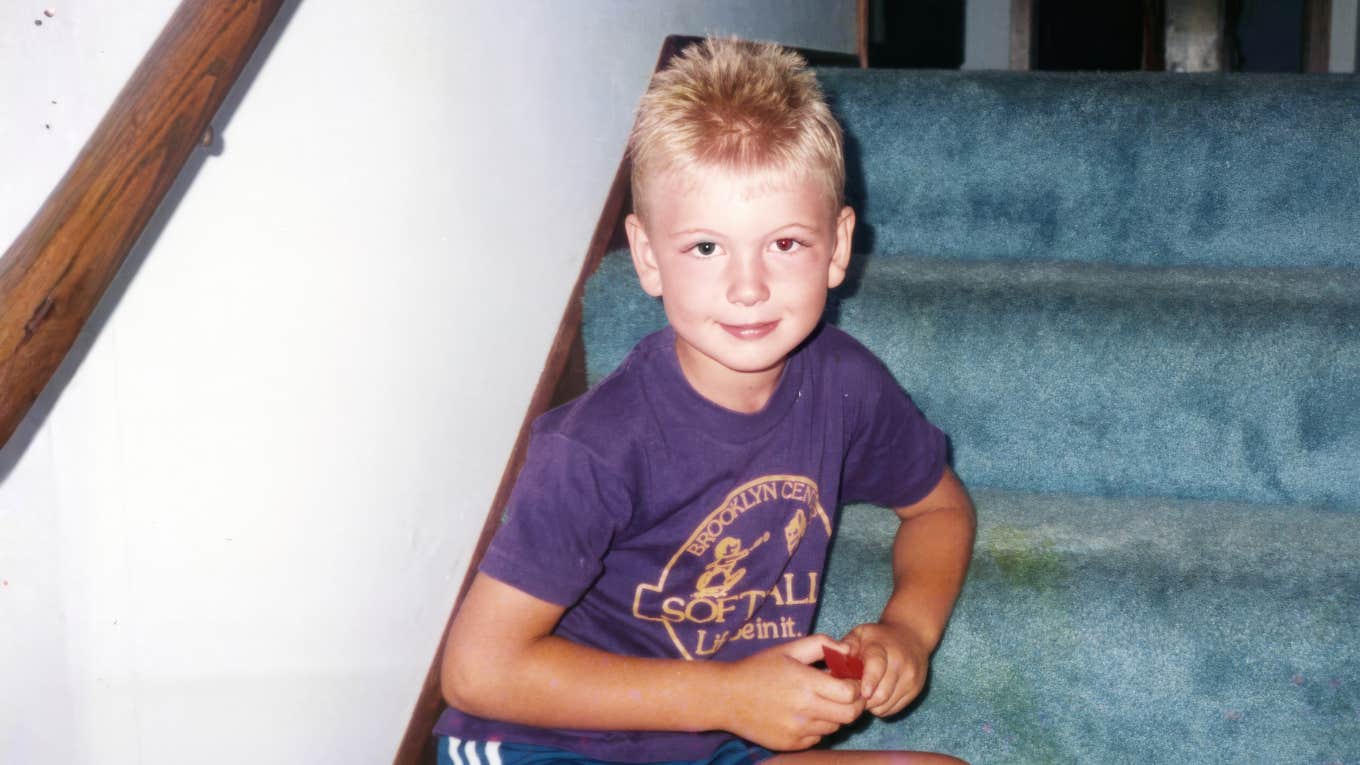5 Forgotten Life Lessons From The 80s And 90s That Shaped Stronger Generations
A look back at the simple, non-nonsense habits from the 80s and 90s we wish would make a comeback.
 melissamn | Shutterstock
melissamn | Shutterstock Growing up in the '80s and '90s came with a kind of freedom and real-world learning that's hard to explain unless you lived it. Kids were allowed to explore, figure things out on their own, and experience life without every step being monitored. Everyday moments like walking to a friend's house or solving boredom creatively quietly sharpened skills that still show up in adulthood.
Now, in a world full of structure and constant input, many of those lessons have faded. These five forgotten lessons offer a reminder of why the eras of the '80s and '90s were more impactful than we realized.
Here are five forgotten life lessons from the '80s and '90s that shaped stronger generations:
1. Being comfortable with boredom
Dr. Gloria Brame, Ph.D., recalls that we elders learned to be comfortable with silence and stillness — something that seems almost frightening to younger generations. I notice my younger friends are plugged into their devices 24/7. They sleep with notifications on, wake up to check their phones, and scroll during every bathroom break. Even downtime isn't really down. They're playing games while monitoring Reddit while half-watching a show. Silence seems to be the enemy.
Back in the 80s and 90s, we didn't have a choice. Boredom was a normal part of life. We didn't question it and found ways to entertain ourselves without depending on devices. That's where daydreaming happened, where we processed our thoughts, where creativity emerged from nothing.
Today's technology is remarkable and exciting since it allows us to achieve certain things once beyond our dreams. Still, it's also created a generation that depends on constant stimulation to feel alive.
2. Making and maintaining real-life connections
 Andrii Iemelianenko via Shutterstock
Andrii Iemelianenko via Shutterstock
A forgotten life lesson from the 80s and 90s is the importance of real-life connections, suggests licensed psychotherapist and author Christina Steinorth-Powell. It's always amazing to me that people will talk about having thousands of online "friends" or "followers," but at the same time, they can't tell you the name of the person who lives next door to them.
While there is some benefit to having online connections, they will never replace real-life connections. If you decide to go on a trip and your house catches fire or a sprinkler breaks, it's your neighbor who will help you, not your online friends. If your car needs a jump, or your dog is missing, your neighbors will be much more inclined to help you than anyone you know online. If you fall and break your ankle, your neighbor will be able to get to you and help you a lot faster than an online connection.
It's important to foster real-life neighborhood relationships so we can help each other and have each other's backs. Who knows, you may actually make a close, real-life friend in the process. We made friends with our neighbors, and now have a potluck that all of us look forward to every year.
It doesn't take much to create neighborhood relationships, either. Make eye contact, say hello, or bring your neighbor's trash cans in as a friendly gesture. These little things can help build a friendship.
3. Being your own problem-solver
Dr. Brame continues, in the 1980s, economic necessity often meant both parents worked, turning many of us into "latchkey kids." We came home to empty houses, did homework (or didn't!) without supervision. If something broke, we tried to fix it. Without cellphones or the Internet (or YouTube!) to help us figure things out, we had only ourselves or, if we were lucky, perhaps an older sibling to help us.
I still remember some of the hilarious meals my latchkey friends made: a slice of American cheese and ketchup on a muffin was our "pizza night." Or the mystery omelet: everyone made them, but you never knew what chaos of ingredients you'd find inside.
When we got scared, we had to calm ourselves or use a telephone (yes, with a rotary dial and everything!) to call a friend to help us. Our parents didn't have jobs where you could easily call them on the company phones.
Today's kids are dealing with unprecedented micro-management. Parents track them via phone, schedule every activity, intervene in their personal lives with friends, and solve problems for them. The intention is good, keeping kids safe, but it's creating young adults who struggle with basic decision-making and feel anxious when facing challenges alone.
The 80s and 90s taught us that kids are remarkably capable and resilient when given the space to struggle and problem-solve. While 21st-century parents face real concerns, our parents didn't have Internet dangers or as many different cultural pressures. Maybe we have overcorrected and traded one extreme for another.
4. Not relying on constant distractions
One forgotten life lesson from this period is that you don’t need to be constantly entertained, says career and life coach Lisa Petsinis. Growing up without smartphones, tablets, or endless scrolling, boredom was a normal part of childhood.
The downtime wasn’t wasted. It sparked creativity and imagination. Kids made up elaborate games, turned cardboard boxes into forts, old clothes into costumes for plays, and rounded up neighborhood friends for outdoor adventures. Boredom didn’t feel like a problem; it felt more like a possibility.
This helped build self-reliance in a way that’s hard to come by now. In the 80s and 90s, kids didn’t wait for parents to structure their day or provide frequent stimulation. They hopped on their bikes, knocked on their friends' doors, or figured out what to do.
Those experiences shaped generations that were more comfortable with unstructured time, better tolerated uncertainty, and were more willing to create something from scratch than have something handed to them.
The lesson was about filling time but about being resourceful and internally driven, especially when life got messy, as it so often did. These skills were carried into adulthood in powerful ways.
5. Having a prevailing sense of hope
 Pressmaster via Shutterstock
Pressmaster via Shutterstock
One of the life lessons that has been forgotten by Gen-Z is that hope must prevail, attests astrologer Aria Gmitter. Gen-Z is excellent at fighting for change, but deep down, at the core of their being, there's a root of hopelessness and despair that fuels their passions.
The generations before were idealists with optimism. We, for the most part, always had hope, and still do. Yes, the generations before Gen-Z sometimes glamorized the process of struggle for the sake of beauty, love, and many other things. There was indeed a willful ignorance as to how bad certain things were in life — discrimination, racism, genderism — but at the core, there was hope and belief that the human spirit would prevail and endure.
Today, Gen-Z fights primarily because of fear. There's a lot of loneliness and despair. Today's music and movies often center on sad stories for the sake of authenticity and the disclosure of ugly truths. But, for whatever reason, this results in cynicism or hard-heartedness. They have forgotten to hold hope dear.
It's not toxic positivity to believe life is good, even when life is hard, or to think you can go through trouble and remain unscathed. Staying hopeful keeps the heart younger. It makes the work light. It gives zing to a day and a smile on your face at the darkest of times. It's why Boomers, Gen-Z, and Millennials say the future has become too soft and lacks coping skills. What's perceived isn't a lack of survival, but through survival, we might lose the hope that makes us human.
Will Curtis is YourTango's expert editor. Will has over 14 years of experience as an editor covering relationships, spirituality, and human interest topics.

